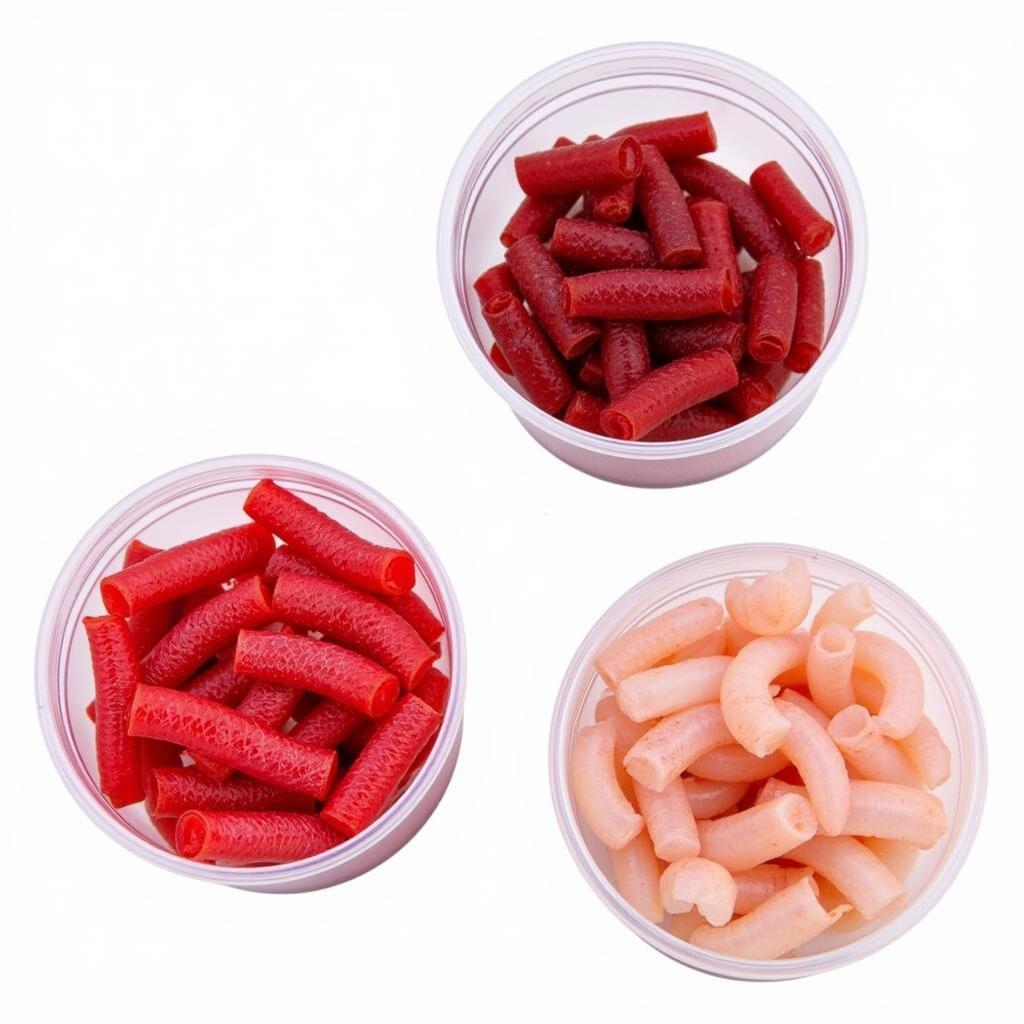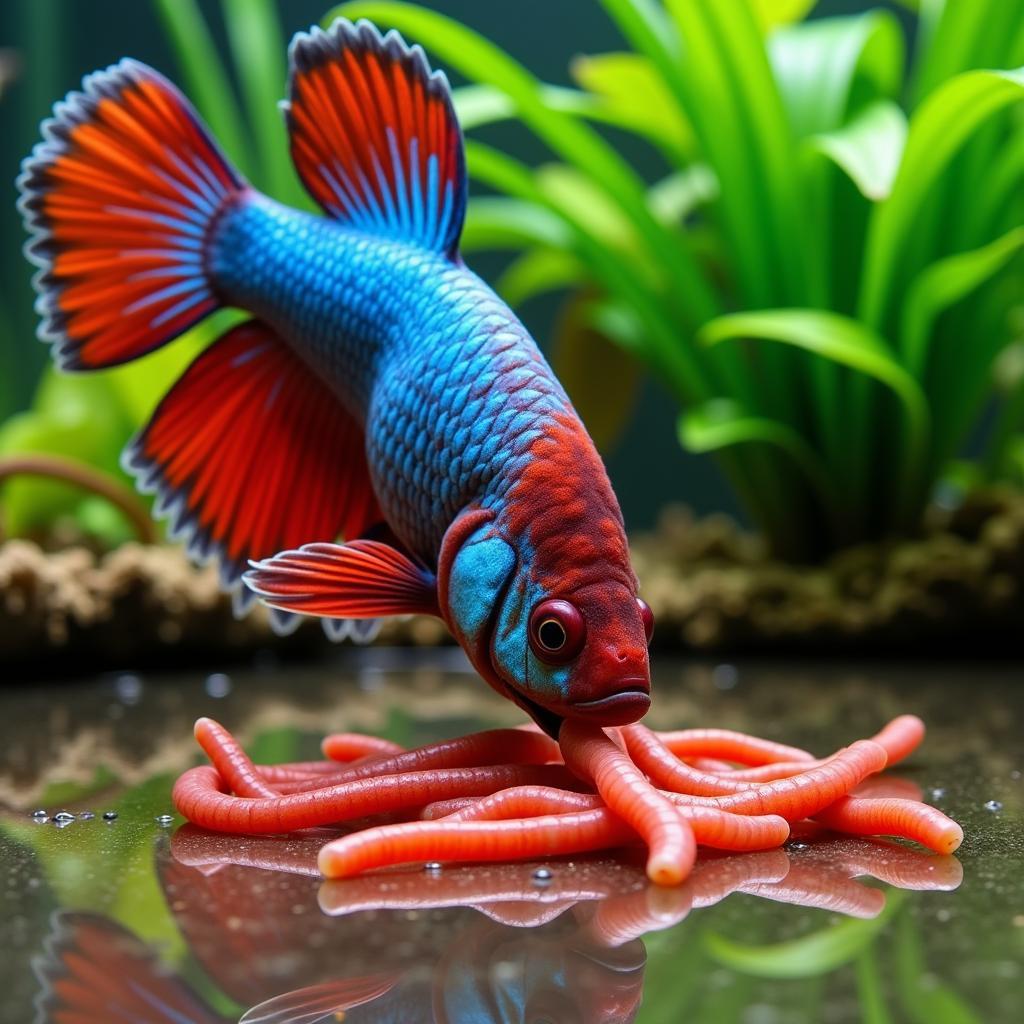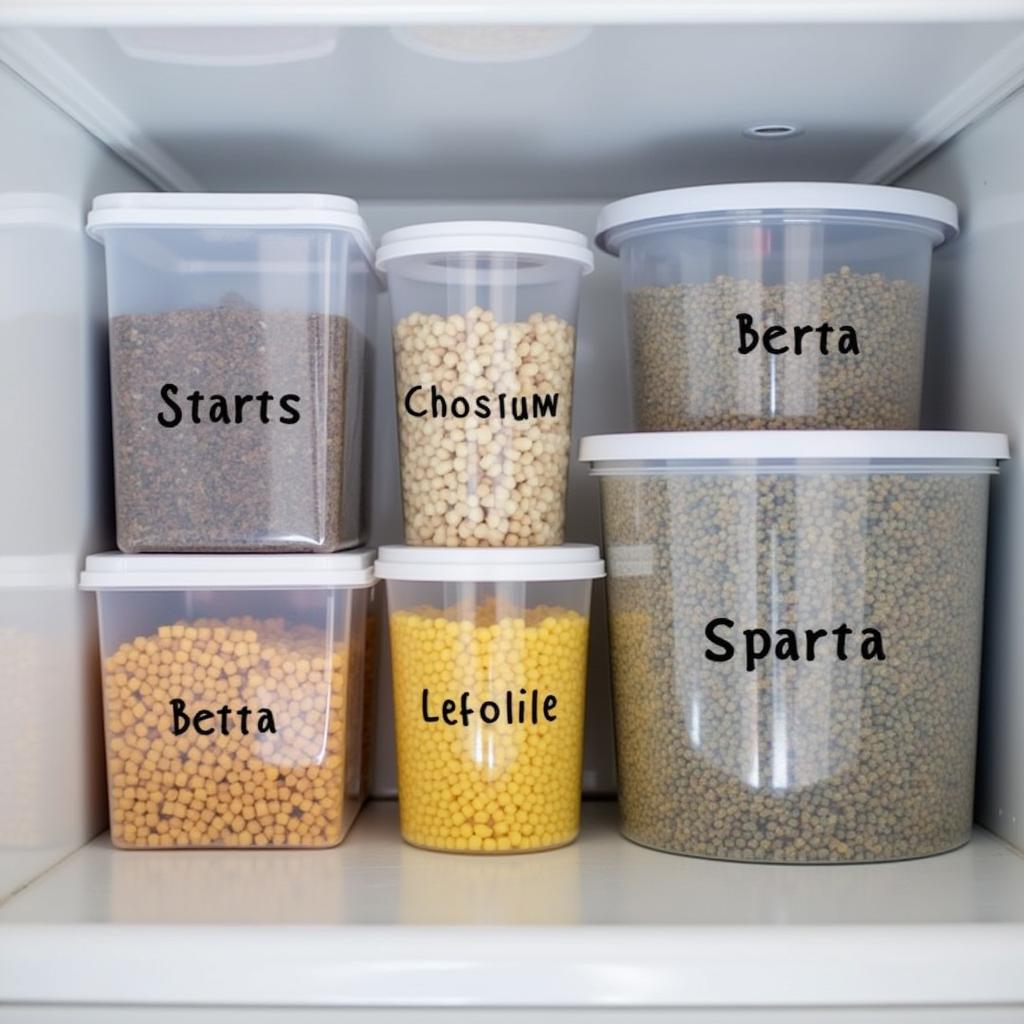Frozen Betta Food offers a convenient and nutritious way to diversify your betta’s diet. Within the first few weeks of switching to a high-quality frozen food, you should notice a vibrant change in your betta’s coloration, increased activity levels, and a general improvement in their overall health and well-being. Let’s dive into the world of frozen betta food and discover why it’s the secret to a thriving, happy betta.
Why Choose Frozen Betta Food?
Many betta owners start with flake or pellet food, but frozen food provides a much closer approximation to their natural diet in the wild. Frozen betta food retains more nutrients than processed dry foods and often contains a wider variety of ingredients, including protein-rich bloodworms, brine shrimp, and daphnia. These options provide essential nutrients that contribute to a stronger immune system, enhanced fin growth, and improved breeding success. Plus, the variety helps prevent boredom and ensures a balanced intake of essential vitamins and minerals. Did you know that betta fish are actually carnivores? Frozen food caters to their natural instincts, stimulating their hunting behavior and providing enrichment.
After introducing frozen food to my own betta, I noticed a marked increase in his energy levels. He became much more interactive and his colors truly popped! It was a clear indication that the nutritional upgrade was making a real difference. Looking for high-quality frozen food options? Check out our frozen food for betta fish.
 Frozen Betta Food Variety: Bloodworms, Brine Shrimp, and Daphnia
Frozen Betta Food Variety: Bloodworms, Brine Shrimp, and Daphnia
How to Feed Your Betta Frozen Food
Switching your betta to frozen food is a simple process.
- Thaw the Food: Never feed your betta frozen food directly from the freezer. Thaw a small portion in a separate container using room temperature water or a betta-specific thawing solution. Hot water can damage the nutrients.
- Drain Excess Water: Once thawed, use a fine-mesh net to drain away excess water. This prevents cloudy water in your betta’s tank.
- Portion Control: Feed your betta only what they can consume in 2-3 minutes. Overfeeding can lead to digestive issues and poor water quality.
- Observe and Adjust: Monitor your betta’s eating habits and adjust the portion size as needed. Every betta is different, and some may require more or less food depending on their size, activity level, and metabolism.
 Betta Fish Enjoying Frozen Bloodworms
Betta Fish Enjoying Frozen Bloodworms
For a wider selection of fish food options, browse our shop fish food page. You’ll find various types of frozen food to suit your betta’s needs.
Frozen Betta Food: Addressing Common Concerns
Is frozen betta food safe?
Absolutely! When stored and thawed correctly, frozen betta food is perfectly safe and highly nutritious for your betta. It’s crucial to source your frozen food from reputable suppliers to ensure quality and minimize the risk of contamination.
How long does frozen betta food last?
Frozen betta food can last for several months in the freezer. Once thawed, however, it should be used immediately and never refrozen.
“High-quality frozen food is a game-changer for betta health,” says renowned aquarist, Dr. Emily Carter. “It provides the essential nutrients they need to thrive, while also stimulating their natural hunting instincts.”
 Proper Storage of Frozen Betta Food
Proper Storage of Frozen Betta Food
You can explore other food options for your Betta, like betta fish food flakes or even explore options for other tropical fish with our range of frozen tropical fish food.
Frozen Betta Food: A Key to Vibrant Health
Feeding your betta a diet rich in high-quality frozen food is a simple yet powerful way to improve their health, enhance their colors, and extend their lifespan. By offering a variety of frozen food options, you cater to their natural instincts and ensure they receive the essential nutrients they need to thrive.
Looking for conveniently packaged frozen fish food? Check our selection of fish food frozen.
FAQ
- What are the best types of frozen food for bettas? Bloodworms, brine shrimp, and daphnia are excellent choices.
- How often should I feed my betta frozen food? 2-3 times a week is generally recommended, alongside other food types.
- Can I overfeed my betta with frozen food? Yes, portion control is essential to avoid digestive issues and water quality problems.
- Where can I buy high-quality frozen betta food? Reputable pet stores and online retailers are your best bet.
- How do I thaw frozen betta food? Thaw a small portion in a separate container with room-temperature water.
- Can I refreeze thawed frozen food? No, never refreeze thawed frozen food.
- Is frozen food better than flakes or pellets? Frozen food is often more nutritious and closer to a betta’s natural diet.
“Providing a varied diet, including frozen food, is crucial for betta well-being,” adds aquatic veterinarian, Dr. Michael Davies. “It’s akin to us humans eating a balanced diet – it’s essential for overall health and longevity.”
For any assistance, please contact us at Phone Number: 02437655121, Email: [email protected] Or visit our address: 3PGH+8R9, ĐT70A, thôn Trung, Bắc Từ Liêm, Hà Nội, Việt Nam. We have a 24/7 customer service team.